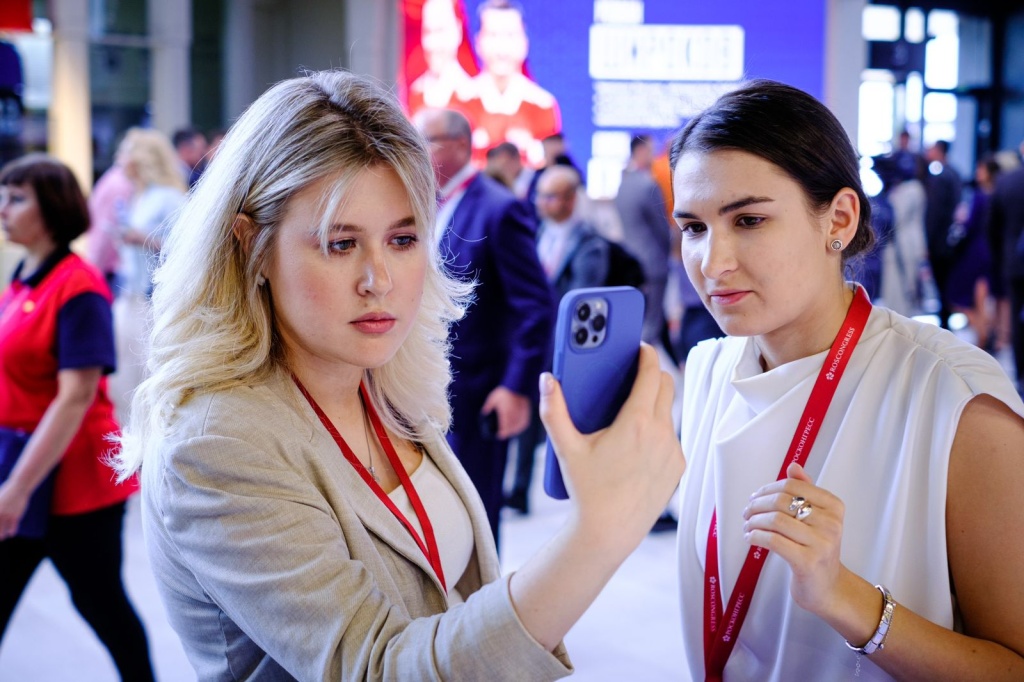
Fifth Eurasian Forum, “The Art of Innovation”, draws to a close
The fifth Eurasian Forum in Verona (Italy) drew to a close on 21 October 2016. The event was organized by the Roscongress Foundation, the Conoscere Eurasia Association, and the St. Petersburg International Economic Forum.
Over the two days of the Forum, participants discussed a number of issues. These included building new projects and models for government interaction and economic cooperation in the current environment, developing the innovative infrastructure of Greater Eurasia, and cooperation in energy, manufacturing, technology, transport, and agriculture.
In particular, innovation was viewed as the main driver of long-term growth and global economic change. According to CEO and General Manager of Leonardo-Finmeccanica Mauro Moretti, joint projects with great innovative potential are now possible in a variety of fields.
“We have to make partnership agreements based on terms which are clear, comprehensible, and enduring. And on this basis, together we must develop new technologies and attain a new level of knowledge. I believe that this is the central element of the framework that should lie at the foundation of our relations. There are a great many industries where it is possible to carry out cutting-edge joint projects which demonstrate that there are no physical or political borders in the modern world, because economics and information flows transcend borders”, he said.
“The world’s leading countries are now seeking new sources of growth, mainly through making new discoveries and developing high-tech industries, digital technologies, energy, robotics, and biotechnologies. I think that as a result of these discoveries and the developments in these industries, we will see a fundamental and revolutionary restructuring of the global economy in the coming years”, said Andrey Akimov, Chairman of the Management Board at Gazprombank.
Deputy Foreign Minister of Belarus Evgeny Shestakov said that innovations are fully opening up highly important areas of cooperation between Belarus and Italy. “For many years now, a large number of Italian companies have been involved in the modernization of sectors of the Belarusian economy, leading the way in a wide range of areas in comparison to our other European partners. One notable recent example of such cooperation is the launch of a new production line at the flagship Belarusian Steel Works (BMZ) in September 2015. Technology and equipment were supplied by our long-time partners Danieli, from Italy, with a total volume of investment of EUR 330 million.
Various aspects and possible forms of collaboration between Greater Eurasia and China were also discussed. In the margins of the Forum, it was announced that the Eurasian Economic Union is making preparations to sign an agreement on trade and economic cooperation with China.
Executive Chairman of ITTN Chen Ning described China’s national strategy, innovative plans to promote entrepreneurship, and state policies to encourage ‘Grassroots Enterprise’.
Global finance and Silk Road expert Song Hongbing commented: “Every time we try to move in a new direction, the world’s economic and financial centres change, and new elements come into play. Russia and China are working on this exact front. We want to suggest alternative directions, and one might say that we dream of a new globalization which has as its foundation a unified transport system and unified railway network. Collaboration between Russia and China is currently developing on this front, and we would like other governments to join us. Eurasian integration is the only way forward. I think that, from this point of view, the Eurasian Forum is incredibly useful, because it allows us to imagine how the economy and the process of globalization will develop in the future.”
Participants in the key sessions repeatedly stressed the importance of building a positive and open dialogue between the European Union and the Eurasian Economic Union on political and economic cooperation.
According to the Eurasian Economic Commission Minister in Charge of Economy and Financial Policy Timur Suleimenov, the Eurasian Economic Union is the driver behind regional integration in Eurasia. “The Eurasian Economic Union has created the conditions for free movement of goods, capital, services, and labour [...] It is now establishing itself as a bridge between East and West that will allow us to boost mutually beneficial relationsbetween the countries of Eurasia and facilitate the unimpeded transit of goods from Asia to Europe.”
“Whether we like it or not, the fact is that integration structures exist across the former Soviet Union. They are evolving, despite some difficulties and challenges. The most notable of these in economic terms have been the Eurasian Economic Union and the Union State of Russia and Belarus. As the two countries’ presidents have stated, the Belarusian-Russian Union is a kind of pilot project for comprehensive integration across the former Soviet Union”, said State Secretary of the Union State of Russia and Belarus Grigory Rapota.
At the event’s conclusion, CEO of the Roscongress Foundation Alexander Stuglev thanked the participants, speakers, and guests who took part in the fifth Eurasian Forum for their combined constructive and fruitful contributions to the organization and running of the event and invited them to participate in the St. Petersburg International Economic Forum, which will be held on June 1–3, 2017 in St. Petersburg (www.forumspb.com).
“The Eurasian Forum has shown itself to be a much-needed venue for dialogue between the EU and the Eurasian Economic Union. Over two days in Verona, we were able to discuss various aspects of relationships within Greater Eurasia, as well as new models of economic cooperation to improve the conditions for international competition and the business climate in our countries. Particular attention was paid to new models of economic cooperation in the context of global crisis, as well as to interregional cooperation”, Mr. Stuglev said.
The President of Conoscere Eurasia Antonio Fallico stressed the practical importance of the Eurasian Forum in Verona. “Around 90% of the Forum’s participants are involved in trade between Russia and Italy. Just two of the major companies taking part in this Forum, naming no names, are capable of generating USD 70–80 billion in contracts over the next 10 years. And they have projects which could theoretically bring in small and medium-sized enterprises of Italian companies, too”, he said.
This year, a total of 600 organizations and 60 speakers took part in the Eurasian Forum. They included government officials, business people, political and public figures, diplomats, experts, and journalists.








